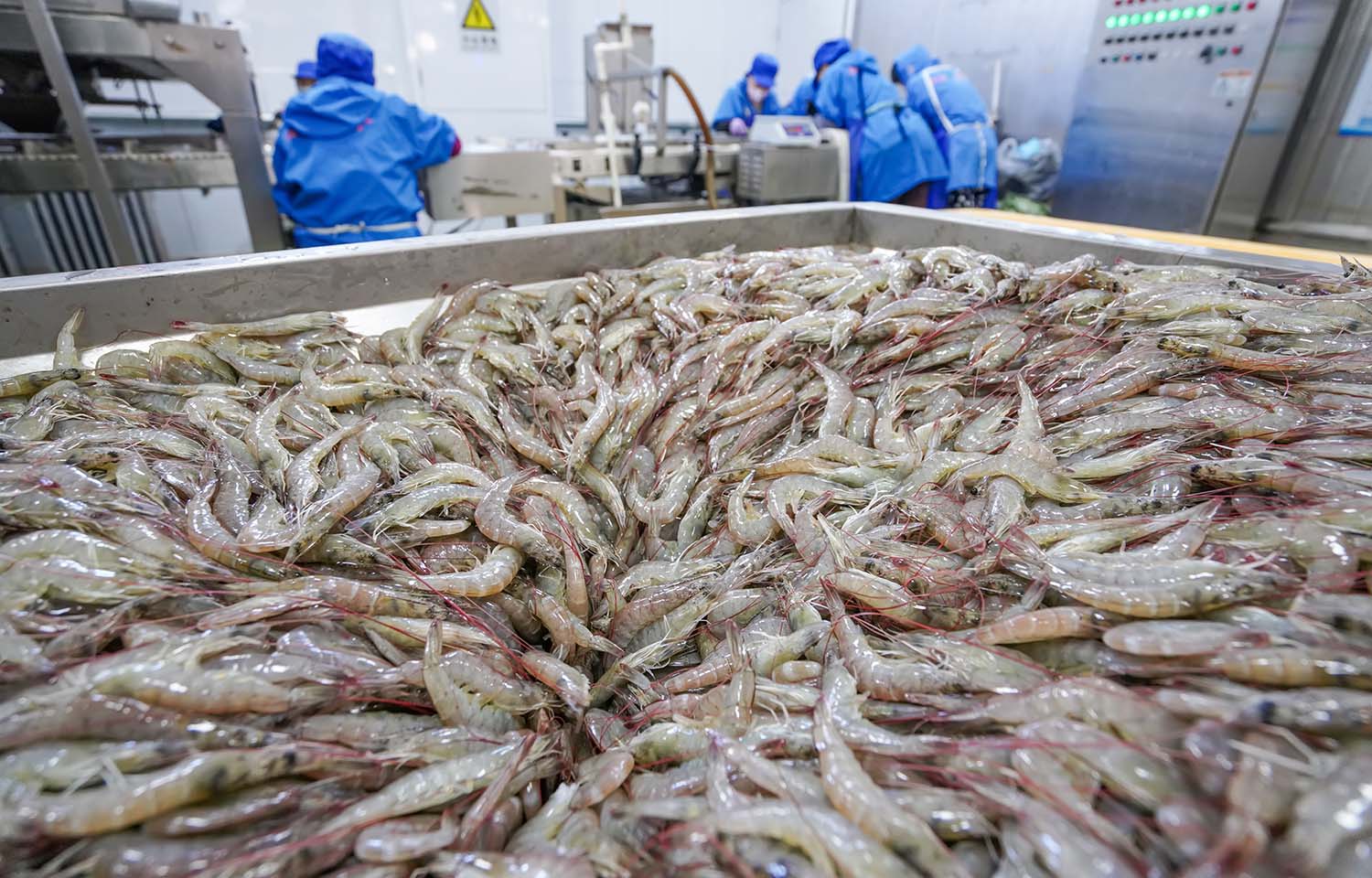The Southern Shrimp Alliance is calling on the U.S. government to increase its scrutiny of shrimp processed and shipped to the U.S. by Chinese exporters, and a complete ban on imports from multiple companies, after recent revelations regarding alleged uses of Uyghur and forced labor by The Outlaw Ocean Project.
According to the SSA, millions of pounds of shrimp are shipped from various countries to China to be processed, then sent to the U.S. The organization estimates over 265 containers of Argentinian shrimp – representing over 12 million pounds of shrimp – were shipped to China to be processed before being shipped to the U.S.
“Bills of lading information show that another twenty containers of shrimp from Ecuador, comprising roughly 800,000 pounds, was shipped to the United States by Chinese exporters over the last year,” the SSA said.
The products processed in China often enter the U.S. labeled as a product of its harvest location rather than as a product of China – customs data indicates less than 90,000 pounds of frozen Chinese-origin shrimp entered the U.S. in 2023, according to the SSA.
The SSA is calling on the DHS’s forced labor task force to add eight seafood-processing firms with operations in Shandong to the “Entity List” under the UFLPA, which would ban their products from entering the U.S.
According to the SSA, Weihai Wendeng Xinghe Food; Yantai Longwin Food; Yantai Sanko Fisheries; the Chishan Group, including subsidiaries Shandong Haidu Ocean Product and Rongcheng Haibo Seafood; the Shandong Meija Group, including subsidiaries Rizhao Jiayuan Food Rizhao Miejia Keyuan Food; Qingdao Tianyuan Aquatif Foodstuffs; Qingdao Lian Yang Aquatic Products; and the Rongsense Group/Shandong Rongxin Aquatic Food Group, including subsidiaries Rizhao Rirong Aquatic Food and Rizhao Rongxing Food; should all be added to the UFLPA entity list.
“The companies listed above were identified following the Southern Shrimp Alliance’s careful review of the Outlaw Ocean Project’s published materials including articles, videos, the methodology section of the project’s website, and the published communications between the Outlaw Ocean Project team members and hundreds of stakeholders in the seafood industry, both in the United States and in China,” the SSA said.
The SSA is also asking the task force to add seafood to its list of priority sectors for UFLPA enforcement, which it said will help ensure that the same safeguards under the UFLPA extend to other processing plants in China.
The calls for scrutiny come as the SSA is working to get additional antidumping duties on shrimp imports as shrimp harvesters in the U.S. push for the federal government to curb imports.
“Our shrimp industry is facing a huge number of challenges right now, and commercial fishing families across the [U.S.] southern coast are suffering,” SSA Executive Director John Williams said. “While our boats are tied up, seafood importers are scouring the globe to find the most vulnerable populations to make a buck off of. This is morally wrong, and it is against the law. We ask for nothing more than the enforcement of our laws.”
Most of the companies listed by the SSA were also named in a recent NGO filing requesting the U.S. implement Magnitsky sanctions against Chinese companies on similar grounds. Magnitsky sanctions would impose a complete entry ban and asset freeze for the companies or individuals targeted.
Photo courtesy of chinahbzyg/Shutterstock







